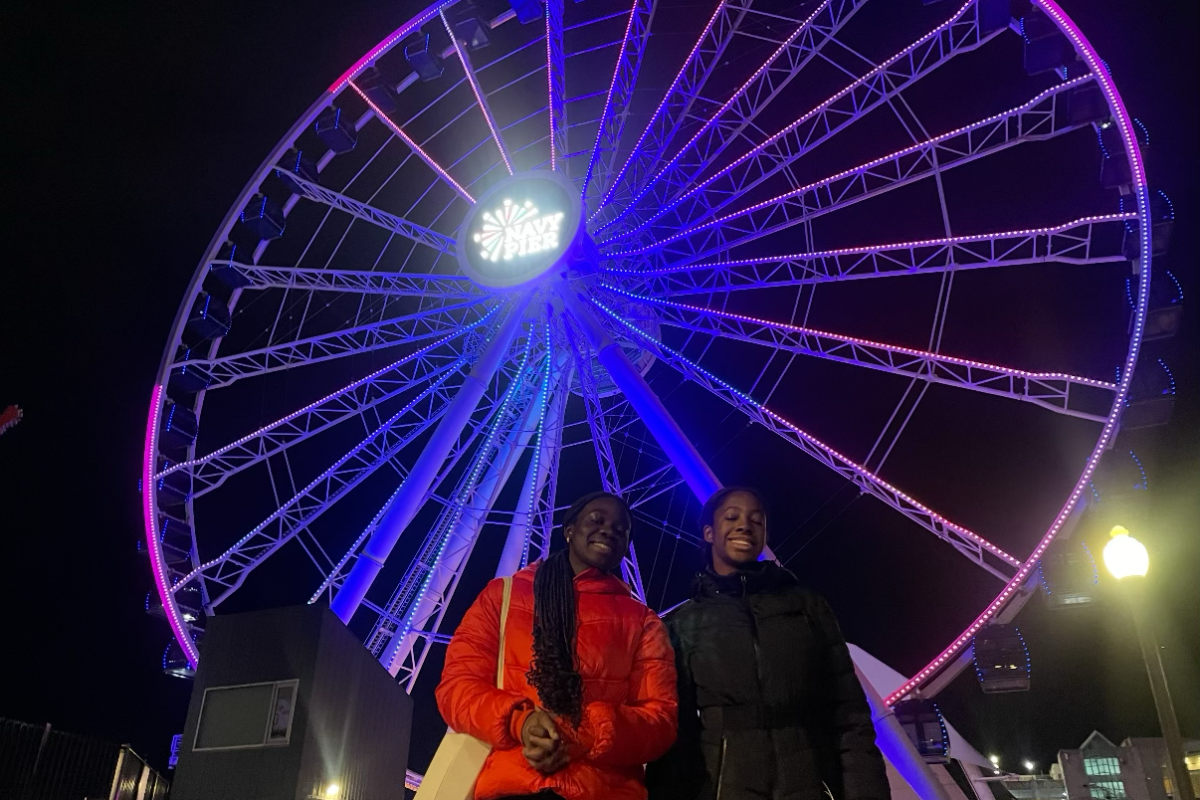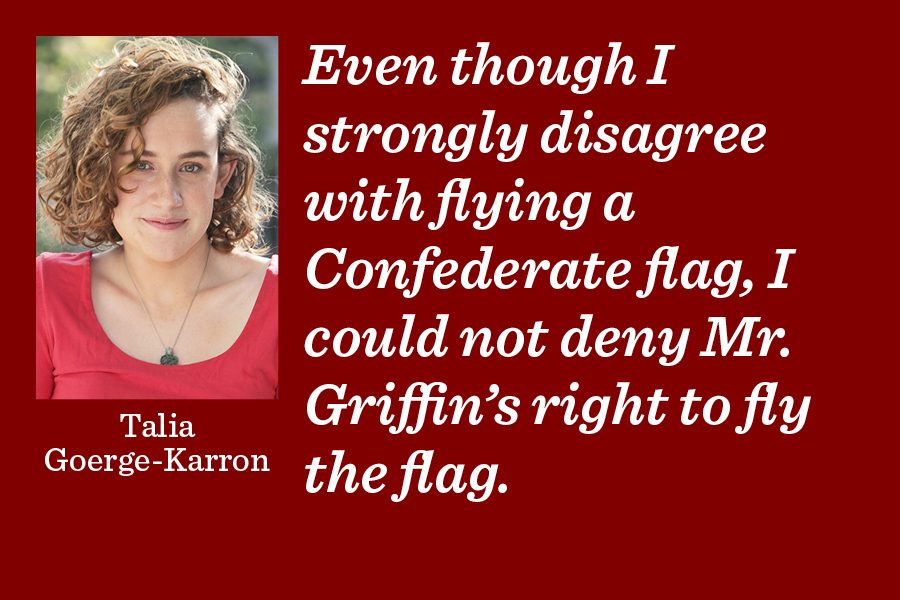Free speech applies to people with different opinions, too
May 10, 2018
“Talia, that’s really just not polite,” a student in my AT African-American history class said in January.
Over the past few months, I’ve learned that standing up for free speech is more important than politeness.
We were discussing Camp Douglas, a Confederate Prisoner of War camp that was located in present-day Bronzeville. The camp was also a training camp for Union army volunteers, and thus an intersection of Confederates and African-Americans.
In the 1990s, Ernie Griffin, a black funeral home owner in Bronzeville, decided he wanted to put up a Confederate flag at half mast to honor the 4,275 Confederates who died at the camp. He had learned that his grandfather became part of the 29th U.S. Colored Infantry and had trained at Camp Douglas.
Mr. Griffin decided that honoring soldiers who died was important. The flag was torn down numerous times, but Mr. Griffin saw the flag as a monument.
“The flag is not a symbol of hate. It is a symbol of respect for a dead human being,” he said in a personal ad for the Chicago Defender at the time.
My class was asked if we thought Mr. Griffin had the right to put up the Confederate flag. I, along with a couple other people, said yes. In America, freedom of speech is a core tenet of our belief system, and even though I strongly disagree with flying a Confederate flag, I could not deny Mr. Griffin’s right to fly the flag.
Just like others in my class, I see the Confederate flag as a sign of hate. To me, it is a symbol of the darkest time in our nation’s history, and I will never completely understand why Americans feel the need to fly Confederate flags.
That being said, it is every American’s First Amendment right to fly a Confederate flag on their property.
Depending on the circumstances, the flag can be perceived as threatening and is not protected under the First Amendment. I believe it was morally wrong and inappropriate for Mr. Griffin to fly a Confederate flag in a predominantly black neighborhood, but he had the First Amendment right to do so.
My personal belief that flying a Confederate flag is wrong has no business standing in the way of anyone’s First Amendment rights.
In April, I was riding in the car with my dad on my way to the when a story about a monument for Camp Douglas came on NPR.
After arriving, we stood in line, and I started to tell him all about Camp Douglas.
Then, a man in front of me turned around and said, “I’m a U.S. veteran who’s gone on seven tours to Iraq and three tours to Afghanistan. You have exactly the right idea about freedom.”
He went on to tell me that when he was fighting for America, it was not about fighting for one ideology but fighting for the right of all Americans to be free. Talking to this man cemented my viewpoint: we cannot choose what is and what is not protected under the First Amendment.
Students at Lab should be accepting of any opposing opinions that are backed up logically. Citing the Bill of Rights is a logical statement. Racist, homophobic and xenophobic ideas should not be tolerated, but politeness is not the law. The First Amendment is the law.































































